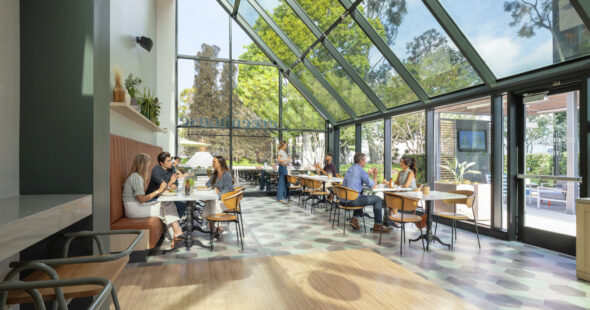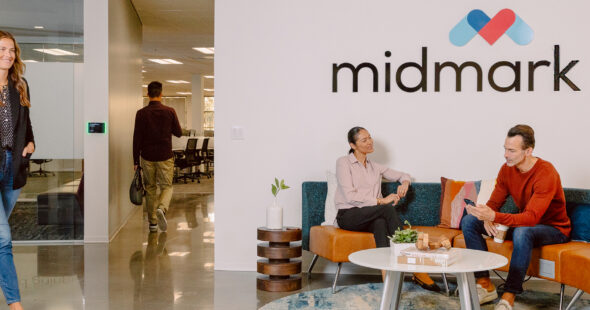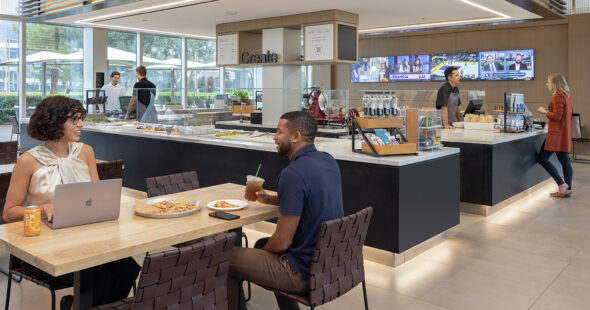The Top Chef and Food Network star discusses reinventing workplace dining with Herb & Ranch and creating a safe space for employees to connect.
Chef Brian Malarkey has been a finalist on Top Chef, a judge on Guy’s Grocery Games, a mentor on The Taste, and the co-owner of Puffer Malarkey Collective, which has a portfolio of 4 restaurants including Herb & Ranch at UCI Research Park. We sat down with him to talk about the original concept behind Herb & Ranch, how it’s evolved to meet our current moment, and why sharing lunch with coworkers is more important than ever.
What was the original concept for Herb & Ranch?
We took the look of a traditional food hall but are operating Herb & Ranch as a fast-casual restaurant, with a chef-driven menu that gives diners the option of five unique stations with the convenience of paying at a central register. The fast-casual approach accommodates any length lunch break and the changing food selection will help our guests avoid menu fatigue as their work week unfolds.
How has the Herb & Ranch experience been adapted?
The style of service has changed, but the quality of the food by no means has changed. It’s still very fast, it’s very healthy, it’s fun, it’s not processed, it’s really just local great food. It used to be individual stations, like a mini food hall, where you’d go up and tell the person who was preparing your food to order. Now we’re cooking from behind-the-scenes with both pre-order and cash register ordering. We also have the luxury of being in one of the greatest venues ever, where people can go outside to a beautiful outdoor park area where they have an incredible meal.
Why is sharing a meal so important for colleagues?
The need to come together is human nature and that has always been the goal of our restaurants. Our restaurants are designed for communities to come together and share stories and ideas. After months of remote work, the opportunity to connect in person over a casual meal is more important than ever. The great service, food and ambience is all in service to creating an environment that facilitates this connection and community.
Part II of our interview with Chef Brian Malarkey discusses how he is steering his business through the pandemic, including an unexpected new opportunity.





